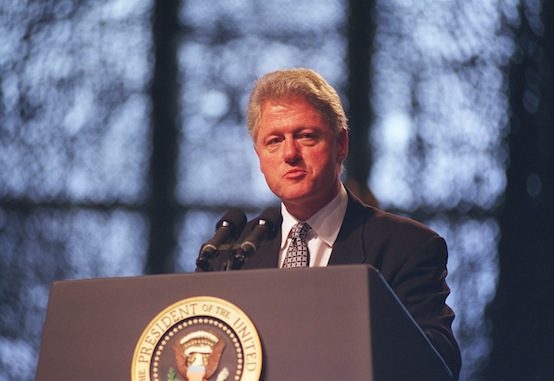The Chinese Embassy Bombing, 20 Years Later

Tom Fox comments on the legacy of the U.S. bombing of the Chinese embassy in Belgrade during the Kosovo war that took place 20 years ago today:
In China, the incident is both vividly remembered and woven tightly into the broader historical narrative of national humiliation. To this day, it is largely regarded as a deliberate strike on sovereign Chinese territory, despite competing lines of argument for why the United States took such action. The U.S. government’s formal apologies and explanations satisfied neither Chinese leaders nor the Chinese people, a stalemate that holds true from the time of the incident until today.
This huge gap in the historical interpretations merits exploration because the five bombs that detonated 20 years ago still reverberate in today’s policy debates. While plenty of analysis is currently devoted to the 30th anniversary of the Tiananmen Square protests, the Belgrade bombing is arguably more relevant to understanding how current U.S.-China relations evolved.
The bombing of the Chinese embassy was one of many screw-ups in the Kosovo war, some of which Gil Barndollar described very well in his article for the current issue of TAC. The original official excuse for the attack was that the U.S. was relying on outdated maps and didn’t realize what our forces were bombing, but it was such a monumental and glaring error that it isn’t surprising that this has not persuaded the Chinese government or the public.
I followed the Kosovo war on cable news very closely when it was happening, and I remember seeing the videos of the angry crowds surrounding and damaging our embassy in Beijing in the immediate aftermath of the attack. That was an instructive introduction to how the modern Chinese government both exploited and channeled nationalist sentiment to serve its own purposes, and it foreshadowed the way that the attack would be remembered in China. It was also an important lesson in the dangerous consequences that unnecessary military interventions could have for the U.S. The damage that the Kosovo war did to U.S.-Russian relations is widely recognized as one of the most significant long-term costs of the Clinton administration’s illegal war, but the effect that it had on U.S.-Chinese relations is poorly understood if it is recognized at all.
It is understandable that the Chinese government would be outraged at the bombing of one their embassies, especially when it occurred during an illegal war that their government opposed. We need only imagine how our government and people would react if a similar “accident” took place at our embassy in a country that was being attacked by another major power in violation of international law. Fox notes that U.S. policymakers didn’t take Chinese objections to the war seriously, and so failed to understand the political impact that the bombing had:
Yet U.S. policymakers were hasty to dismiss the May bombing crisis because they missed this context completely, largely due to the U.S. objective of continuing the air campaign and the hubristic assumption that their explanations and apologies would be readily accepted by their Chinese counterparts.
In addition to being an outrage in its own right, the Chinese embassy bombing was was emblematic of the larger flaws of the war that the U.S. and NATO were waging against Yugoslavia.
The Kosovo war was an attack on another state in response to a purely internal conflict that posed no threat to any member of the alliance. A supposedly defensive security alliance joined forces and initiated hostilities against a state that had done and could do nothing to them. In a flagrant violation of the U.N. Charter, the U.S. and its allies used force without Security Council authorization when there was no possible justification that they were acting in self-defense. It heralded the next two decades of illegal and unnecessary wars that the U.S. and its allies would wage, sometimes under the NATO banner and sometimes not, and paved the way for the gradual usurpation of Congressional war powers by the executive.
Comments